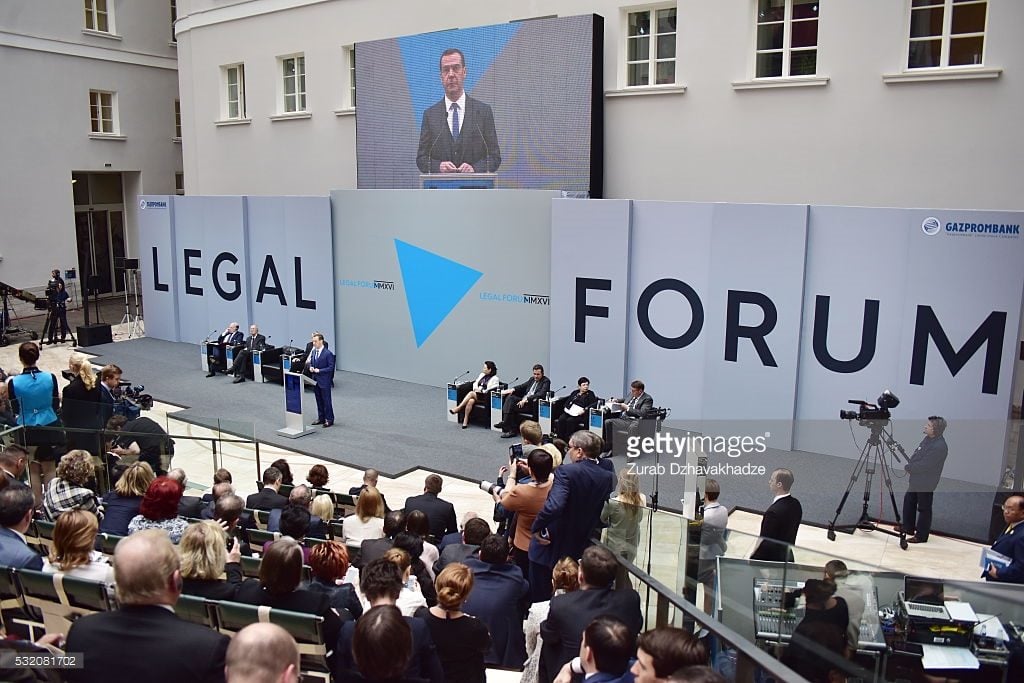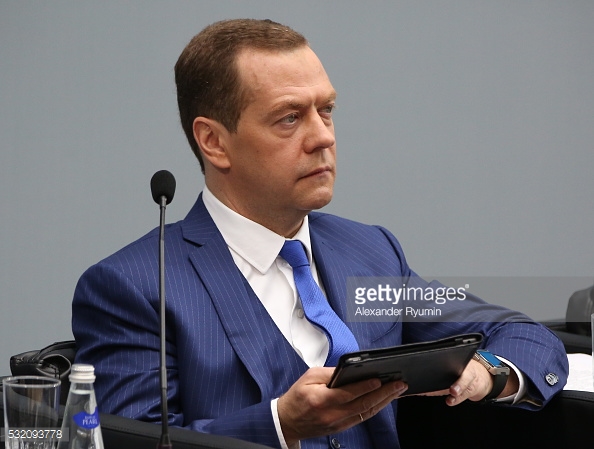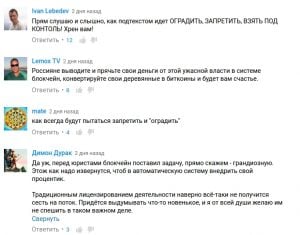At the International Legal Forum, which took its place May 18-21, in St. Petersburg, Russia, Russian prime minister Dmitriy Medvedev gave a short speech to legal experts on the Internet of Things, blockchain technology, and DAOs. Although his rhetoric was calm, soft and simple, many Russian cryptocurrency users saw his statements as an omen of a future clampdown.

Medvedev began by noting the fast development of a strange and unknown ”new part of the virtual space,” saying:
[…] I would like to focus on the new part of the virtual space which we’ll need to study in detail. I’m talking about e-commerce and electronic transactions. They’re developing so fast that the law isn’t capable of reacting in real time.

He continued by specifying what exactly the legal experts need to focus on:
There are plenty of examples: today, the so-called ‘blockchain technology’ is evolving, the so-called ‘smart contracts technology’ is too. In fact, with their help, new so-called ‘autonomous non-government self-regulating systems’ are emerging. No doubt, they are an exceptionally interesting challenge for legal specialists. Very often, the boundaries of law end here.
Interestingly, Medvedev points out that autonomous, self-regulating systems lack written laws. It seems the Russian prime minister hasn’t considered that decentralized, autonomous, i.e. self-regulating systems, don’t need additional regulation by design, especially from central governments.
Instead Medvedev told the audience that “if it’s not regulated by the Russian government, it’s not regulated at all,” insinuating that Russia’s political system would address citizen’s interests and protect users better than an Internet-based consensus system.
The prime minister then touched upon the topic of IoT, saying:
Selling and buying the property, establishing property rights, are all being performed autonomously. The interaction over the network is between electronic devices, not people. Such devices are exchanging data with each other on behalf of their owners. The so-called ‘Internet of Things’ is spreading all over the world.
 Medvedev finished his speech by pointing that legal specialists are allowed to start using their ”creative powers” and begin to prepare practical solutions for overseeing online users’ participation in DAOs and blockchain-related businesses.
Medvedev finished his speech by pointing that legal specialists are allowed to start using their ”creative powers” and begin to prepare practical solutions for overseeing online users’ participation in DAOs and blockchain-related businesses.
Medvedev:
Let me repeat, this situation requires you to group your creative powers, which is not a standard task for a legal experts. This is a task of searching for new, effective solutions, which may become the basis for creating a brand new legal sphere. I hope this topic will provoke new discussions within the ongoing event, and maybe we will even get some new proposals and solutions. As for the efficacy of these solutions, I hope to discuss these at future forums.
Russian Bitcoin Users React
Russia’s Bitcoin community, however, didn’t see the prime minister’s speech as a welcome sign. One of Russian Bitcoin news outlets, bitnovosti.com, posted this video on their YouTube channel. Here’s the translation of some Russian commentators’ opinions.

User Ivan Lebedev: “I’m listening to him and hear the undertone: fence it, restrict it, take under control! No way!”
User mate: “They will try to restrict and ‘fence us,’ as always.”
User Димон Дурак: “Uh Oh, he offers jurists to solve the blockchain problem — a colossal work. You need to be a genius to implement a third party fee to an automated system. They probably won’t be able to deploy effective tax collection using an ordinary license. It’s time for them to invent something new, and I wish they would not do it in such haste.”
User Алексей Фролов: ‘”They will fuck up the blockchain and Google soon, so you guys will get the North Korea here… Where they brainwash local people that Americans are so poor that they melting the ice to get drink in winter and have nowhere to sleep when it’s cold.”
